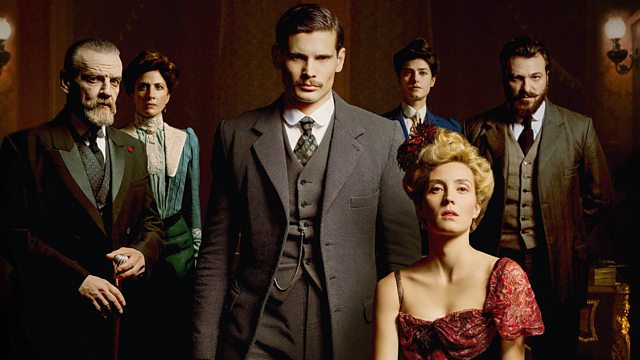Paris Police 1900 (S1, E8)
Episode 8 of Paris Police 1900 provides viewers that survived the tumult of season 1 with some interesting resolutions to many of the show’s enduring conflicts. The episode also ties up several other loose ends in a very thoughtful way by putting capstones on the show’s commentary about marriage, corruption, and gender. It’s a fine culmination of the season.
None of the episodes of Paris Police 1900 have titles, but if they did this one would be called “The Reckonings.” Almost every character gets their account settled in some way or another in this episode. Fiersi beats his murder charges, but will never police again, and the show makes it clear he’s more than ok with that. (Puybaraud sucked all of the fun out of the job anyway.) Meg survives her stint as an unqualified spy and moves on to her next grift like the hustler she is. The Antisemite League collapses and leaves the Guérin family destitute and fractured. (That’s what you get for slaughtering baby pigs.) And Gabriel Pontevès, Joséphine Berger’s killer, catches a double-barrel to the chest in an act of corrective justice from Fiersi. And lastly, we have Puybaraud: A volley of bullets condemns him to a life of paralysis and muteness. (He had it coming!)
As for everyone else, their life choices invite bright futures. Madam Lépine kicks her drug habit and reconnects with her husband. They actually share a tender moment we’ve been dying to see all season. Antoine makes an earnest admission to Jeanne Chauvin that she is a much better detective than he will ever be, and they ride off together in a cute act of courtship. (Notice how Jeanne leads and Antoine follows in this scene though.) Overall, it’s a satisfying ending to a show that has been engaging and surprisingly fun.
And I use the word “surprisingly” because the idea of watching Paris Police 1900 initially struck me as arduous work rather than delightful entertainment. There were subtitles to read, an excess of characters to catalog, and a historical context that I needed to make myself abreast of. It felt like an overwhelming proposition because, as an American media consumer, I haven’t really been conditioned to give that level of mental effort consistently just to be entertained. (Thanks a lot TikTok!) However, Paris Police 1900 has become one of my all-time favorite shows because it forced me to do just that. It forced me to become an active viewer. I remember researching the Dreyfus Affair after the first episode and feeling so enlightened afterward. I remember feeling grateful for being pushed to learn who Jeanne Chauvin was and how Louis Lépine revolutionized policing. Every episode of this season seemed to offer a surprising nugget of historical fact that moved the story forward and added an engaging complexity to the story. It was a nice change of pace from the standard police procedural.
With that being said, I have been struggling all season to articulate exactly what it is that I like about this show so much. There’s the obvious: The characters are well-played, the cinematography is captivating, and the sound design is superb. (Go back and pay attention to the creaky floors, doors, and ominous scores throughout the season.) And while those things are all great, there has been something about the essence of this show that has been speaking to my soul that I couldn’t quite put my finger on.
However, after I read Ken’s review of episode 7, I figured it out. In that review, he gives us a brief lesson in defamiliarization. He reveals that its purpose is to show us tropes or themes that we’ve seen before, but tweaked in a way to make them strange and new. I found his point salient because it became the skeleton key that unlocked what I liked best about the show: the insight that it offers into the inception of the modern metropolis. We have seen so much B-roll footage of Time Square and the Sydney Opera House that the sight of them barely moves us anymore. They’re just too familiar.
Paris Police 1900’s use of sex, violence, and plot are not groundbreaking. However, the show is exceptionally good at using those things to illuminate the humanity of an unfamiliar era in civilized history rather than sensationalizing them for entertainment. Paris Police 1900 grabs you with ethos and that is so refreshing given the current media focus on spectacle. And I know Downton Abbey accomplished something similar a decade ago, but Paris Police 1900 is different. Paris Police 1900 is a story about people navigating the challenge of building a city and negotiating their place in its society. It’s a back-to-basics approach that is ironically fresh. I’m curious to see how that strategy could be incorporated in season 2.

